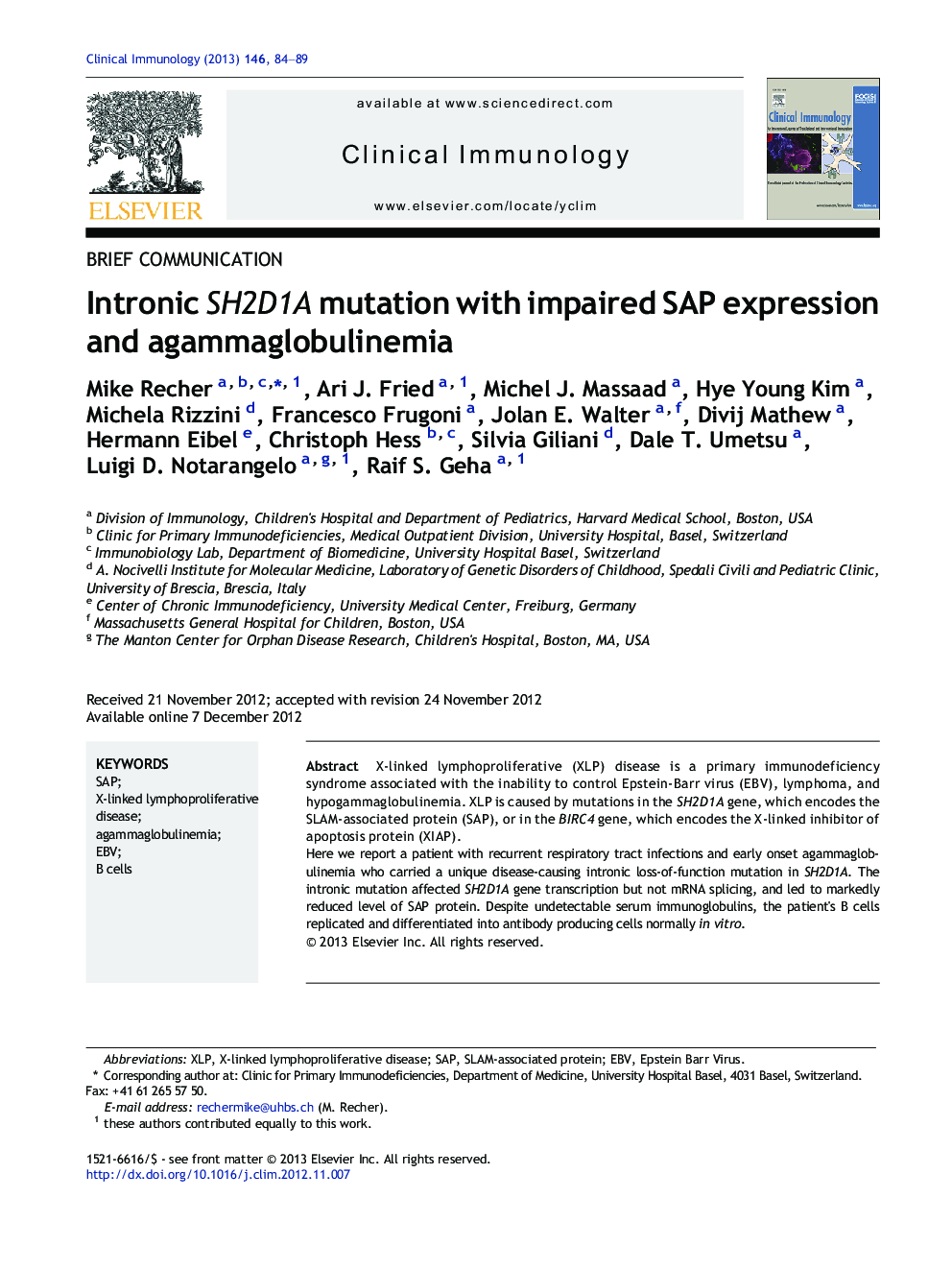| Article ID | Journal | Published Year | Pages | File Type |
|---|---|---|---|---|
| 3256951 | Clinical Immunology | 2013 | 6 Pages |
X-linked lymphoproliferative (XLP) disease is a primary immunodeficiency syndrome associated with the inability to control Epstein-Barr virus (EBV), lymphoma, and hypogammaglobulinemia. XLP is caused by mutations in the SH2D1A gene, which encodes the SLAM-associated protein (SAP), or in the BIRC4 gene, which encodes the X-linked inhibitor of apoptosis protein (XIAP).Here we report a patient with recurrent respiratory tract infections and early onset agammaglobulinemia who carried a unique disease-causing intronic loss-of-function mutation in SH2D1A. The intronic mutation affected SH2D1A gene transcription but not mRNA splicing, and led to markedly reduced level of SAP protein. Despite undetectable serum immunoglobulins, the patient's B cells replicated and differentiated into antibody producing cells normally in vitro.
► Immunologic features of a patient with agammaglobulinemia and normal B cell numbers are reported. ► An intronic mutation in SH2D1A was found to result in loss of SAP protein expression. ► Patients with intronic SH2D1A mutations may lack typical clinical features of XLP.
